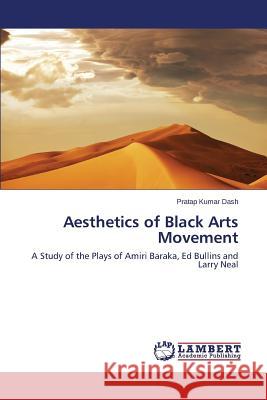Aesthetics of Black Arts Movement » książka
Aesthetics of Black Arts Movement
ISBN-13: 9783659590030 / Angielski / Miękka / 2014 / 236 str.
Aesthetics of Black Arts Movement: A Study of the Plays of Amiri Baraka, Ed Bullins and Larry Neal focuses comprehensively on the African- American Drama of 60s in general and the Black Arts Movement in specific. It is a research based writing examining the plays of the three distinct Black American playwrights like Amiri Baraka, Ed Bullins, and Larry Neal in the light of the aesthetic analysis of the distinctive features of Black Arts Movement as propagated in the 60s in the so called time of the Second Black Renaissance. The sum and substance of the plays of the playwrights carry out strong messages of the socio-cultural, political, artistic and intellectual awakening of the African- Americans trying to establish their American identity along with African cultural consciousness. Thus, these playwrights emerge as the experimentalists with a view to bringing about social reform in artistic ways ranging from revolutionary and agit-prop plays to street theater and then shifting onto off broad way. The book is useful for reference at postgraduate level dealing with the language and literature of Black drama as well as for the researches in the field of leftist and existential plays.
Aesthetics of Black Arts Movement: A Study of the Plays of Amiri Baraka, Ed Bullins and Larry Neal focuses comprehensively on the African- American Drama of 60s in general and the Black Arts Movement in specific. It is a research based writing examining the plays of the three distinct Black American playwrights like Amiri Baraka, Ed Bullins, and Larry Neal in the light of the aesthetic analysis of the distinctive features of Black Arts Movement as propagated in the 60s in the so called time of the Second Black Renaissance. The sum and substance of the plays of the playwrights carry out strong messages of the socio-cultural, political, artistic and intellectual awakening of the African- Americans trying to establish their American identity along with African cultural consciousness. Thus, these playwrights emerge as the experimentalists with a view to bringing about social reform in artistic ways ranging from revolutionary and agit-prop plays to street theater and then shifting onto off broad way. The book is useful for reference at postgraduate level dealing with the language and literature of Black drama as well as for the researches in the field of leftist and existential plays.











